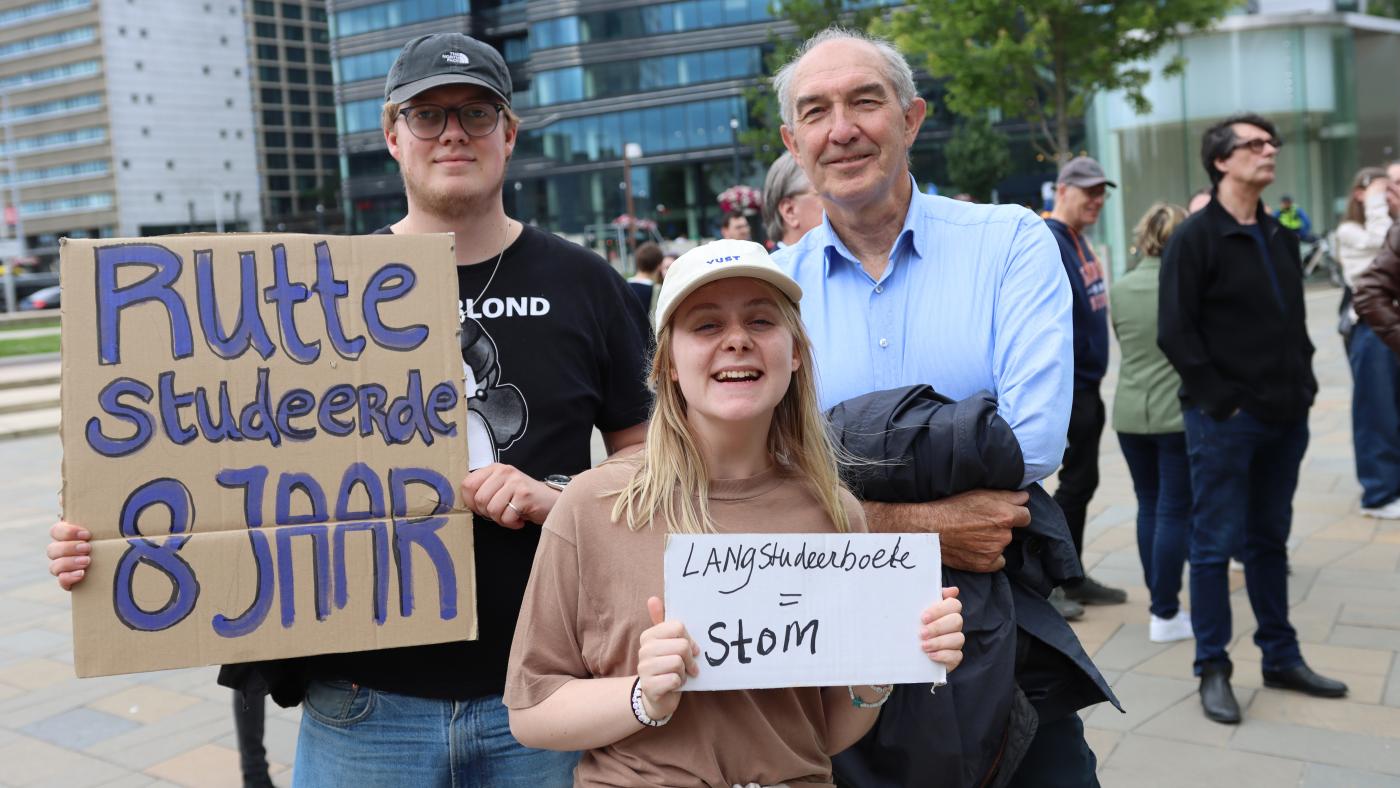UU President Anton Pijpers to protest in The Hague
Austerity measures jeopardize education and research

Last Thursday, Dom Square should have become too small for the biggest protest from the higher education sector ever. Estimates said that 10,000 ten students and professionals from all over the country would come to Utrecht to unite against the government's plans to cut one billion euros from the higher education budget. Henk Kummeling, Margot van der Starre, Niels Vreeswijk and I had also cleared our agendas to attend the protest. The expected turnout exceeded all my expectations.
I was very disappointed on Wednesday when I learned that the organisers had decided to cancel the protest due to a security threat. It made me sad. Sad that we had to worry about the safety of students and employees who wanted to protest peacefully. And sad that, for a moment, it seemed that we wouldn't be able to make our voices heard in The Hague.
At the same time, I was pleased to see so much creativity and resilience immediately emerge in our community, which sought alternative ways to protest like recording videos, travelling to The Hague to protest in the House of Representatives, and holding local protest marches in almost all university cities in the Netherlands. In addition, student unions decided to come to Utrecht and protest anyway.
We were not physically together, but we were still united in our voice: these budget cuts endanger education and research – and, consequently, the future of the Netherlands. As someone so aptly put it on one of the protest signs, this is an "Eppocalypse" (a reference to the Minister of Education, Eppo Bruins, Ed.).
Cutting funds from the source of innovation: a ridiculous contradiction
I understand that staff and students are very concerned about the government's plans. I have the same concerns and so do my fellow Executive Board members Margot, Henk and Niels. After all, how accessible will the university be if there is a fine for those who need a bit longer to graduate or if the tuition fees are increased for all students? How does the fact that the starter and incentive grants are at stake affect young researchers' mental health? If we all must do with less, what does that do to the workload in general? It is a ridiculous contradiction that the Schoof Cabinet mentions the word "innovation" 85 times in the government programme, but at the same time wants to cut a billion euros from the source of innovation.
If the government plans pass the budget consultation with the Ministry of Education, Culture & Science at the end of this month without any changes, and if the plans are also approved by the Senate, our university will have to make do with over 30 million euros less next year. An amount that could increase to 70 or even 80 million euros in the years thereafter. This means we must consider certain scenarios to avoid drastic measures later.
Increasing pressure
Some people in the UU community are surprised, wondering whether we playing into the hands of The Hague by already starting to take austerity measures before we even know if our protests will be effective. That's a legitimate question. However, we simply cannot afford to do nothing. The fact that we are already thinking about how we could convert the announced budget cuts into policy does not detract from my wish that the budget cuts will be swept off the table. That is why we are protesting, increasing the pressure together with other universities and allies in the hope of influencing the debate about the education budget. In addition, we are considering taking legal action against the austerity measures alongside other universities wherever possible. The previous cabinet made commitments that are now being reversed.
At the same time, it would be bad to wait and see if the cabinet's plans will be softened or not. The cabinet is stubbornly sticking to the main points in almost all dossiers. If something is changed somewhere, as happened in September with the sector plans, they cut back even harder somewhere else. There is a Dutch idiom for that: giving someone a cigar from their own box, meaning you're offering someone something but they are the ones actually paying for it.
Handbrake
Suppose we wait a few more months before formulating policy, but the financial reality remains the same. In that case, we may be confronted with an even grimmer scenario because we will no longer be agile enough. We are already making plans now to prevent tougher interventions later. We are pulling the handbrake instead of having to use the emergency brake later, which does not make the choices we have to make any less painful, of course.
Because these plans are so painful, I will continue to shout that Utrecht University is against the austerity measures. If the worst-case scenario does come true, I hope that we can maintain the same unanimity as last Thursday.